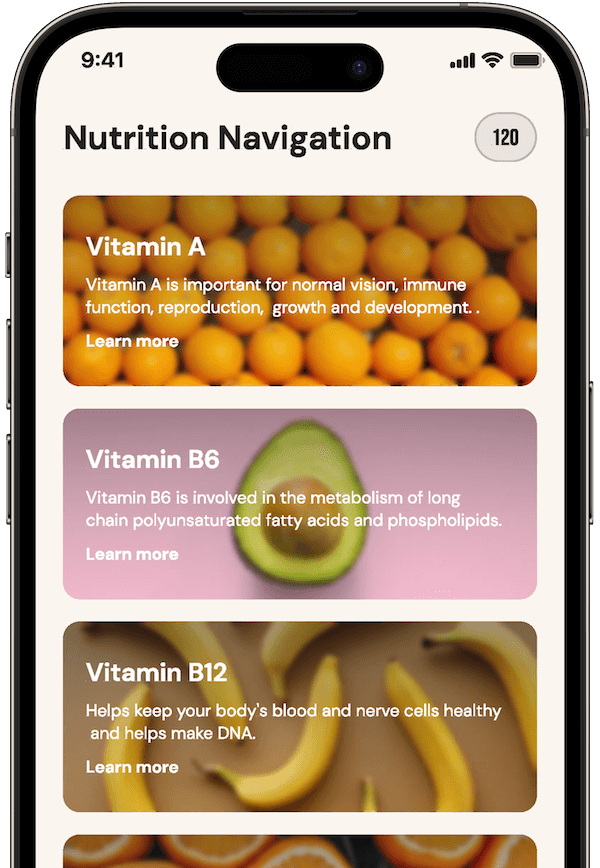Experiencing the ups and downs of adenomyosis firsthand has been incredibly challenging. Imagine my surprise when I discovered that making significant lifestyle and nutrition changes could actually make a difference!
As a certified nutrition coach from the Institute of Integrative Nutrition in New York, I’ve spent my career helping others manage their health through nutrition and wellbeing. One of my secret weapons? Magnesium. Yes, magnesium—not just good for your mental wellbeing and sleep, but also a game-changer for adenomyosis. So, let’s dive into how this unassuming mineral can make your uterus a much happier place.
Yes, as a general rule, magnesium is good for adenomyosis. It helps reduce inflammation, alleviate pain, and manage symptoms by supporting hormonal balance and overall health. Magnesium supplements, especially magnesium citrate which is readily absorbed by the body, can be an effective part of an adenomyosis treatment plan.
What is Adenomyosis and How Does It Affect the Body?

Adenomyosis occurs when the inner lining of the uterus breaks through the muscle wall of the uterus. This condition can lead to symptoms such as heavy menstrual bleeding, severe cramps, chronic pelvic pain, and bloating. These symptoms can significantly impact daily life and overall well being.
Inflammation plays a major role in worsening adenomyosis symptoms. Chronic inflammation can lead to increased menstrual pain and discomfort, making it harder to manage the condition. Reducing inflammation is crucial for managing adenomyosis effectively.
The Role of Magnesium in the Body
Why is Magnesium Important for Health?
Magnesium is an essential mineral that plays a key role in numerous bodily functions. It helps regulate muscle and nerve function, blood sugar levels, and blood pressure. Additionally, magnesium supports the production of protein, bone development, and DNA synthesis.
How Does Magnesium Affect Hormonal Balance?
Magnesium is crucial for maintaining hormonal balance. It helps regulate cortisol levels, which can affect stress and inflammation. For women, magnesium is particularly important for managing menstrual health and reducing symptoms associated with hormonal imbalances.
Is Magnesium Good for Adenomyosis?

Magnesium has anti-inflammatory properties that can help reduce inflammation in the body. By lowering inflammation, magnesium can help alleviate the pain and discomfort associated with adenomyosis. Studies have shown that magnesium supplementation can be beneficial for reducing chronic inflammation.
Magnesium can help reduce menstrual pain, alleviate cramps, and improve overall well being. It supports muscle relaxation, which can ease the severe cramps often experienced with adenomyosis. Magnesium also helps reduce the heavy bleeding and chronic pain associated with the condition.
Ways Magnesium Can Improve Adenomyosis:
- Reduces inflammation
- Alleviates pain and discomfort
- Eases severe cramps
- Decreases heavy menstrual bleeding
- Supports muscle relaxation
- Improves overall wellbeing
What Are the Various Forms of Magnesium?
Magnesium Oxide
Magnesium oxide is one of the most common forms of magnesium supplements. It has a high magnesium content per dose but is not as easily absorbed by the body compared to other forms. It is often used to relieve constipation due to its laxative effect. While it can provide some benefits for muscle relaxation, it may not be the most effective option for reducing adenomyosis symptoms.
Magnesium Chloride
Magnesium chloride is highly absorbable and is often used in topical applications, such as magnesium oils and baths. This form is beneficial for quickly raising magnesium levels and is known for its ability to relax muscles and reduce pain. Its topical application can be particularly useful for targeting localised pain associated with adenomyosis.
Magnesium Sulphate
Magnesium sulphate, commonly known as Epsom salt, is widely used in baths to soothe sore muscles and reduce inflammation. It is easily absorbed through the skin, making it an effective way to boost magnesium levels and alleviate pain. Soaking in an Epsom salt bath can provide relief from the cramps and muscle tension associated with adenomyosis.
Magnesium Citrate
Magnesium citrate is highly recommended for adenomyosis because it is easily absorbed by the body. It is effective in reducing inflammation and alleviating pain. Magnesium citrate is often used to treat constipation and can help support overall digestive health. Its high bioavailability makes it a preferred choice for managing adenomyosis symptoms through supplementation.
What Foods are High in Magnesium?

Foods rich in magnesium include:
- Leafy greens like spinach and kale
- Nuts and seeds such as almonds and chia seeds
- Fatty fish like salmon and mackerel
- Legumes
- Whole grains
Including these in the foods you eat can help increase your magnesium intake naturally. On the flip side, it’s important to avoid foods that trigger inflammation and exacerbate adenomyosis. For a more in-depth look at what foods to avoid, read this article I recently wrote: What Foods Trigger Adenomyosis?
How Much Magnesium Should You Take Daily?
The recommended daily allowance (RDA) for magnesium varies by age and gender. For adult women, it is generally around 310-320 mg per day.
The most important rule of health and wellbeing is to cater your plan towards your own unique bio-individual requirements, consult with your health specialist about whether this dosage would be right for you and tailor it accordingly.
How to Track and Manage Your Magnesium Intake

The Unprocessed app can be a valuable tool in managing your magnesium intake. It offers several features that can help you ensure you’re getting enough magnesium and other essential nutrients:
- Track Your Food and Supplement Intake: The app allows you to log all the foods and supplements you consume daily. This helps you keep a detailed record of your magnesium intake and ensures you are meeting your daily requirements.
- Monitor Symptoms: By tracking your symptoms alongside your nutrient intake, the app helps you identify any correlations between what you eat and how you feel.
- Identify Patterns: The app can help you identify patterns and trends over time. For example, you might notice that your symptoms improve on days when your magnesium intake is higher. This information can be invaluable for adjusting your nutrition and supplement regimen to better manage your condition.
- Customised Nutrient Goals: The app can provide personalised recommendations based on your specific needs and health goals.
By using the Unprocessed app to track your nutrient intake, monitor symptoms, and identify patterns, you can take a more proactive and informed approach to managing adenomyosis. Ensuring you get enough magnesium and other essential nutrients can significantly improve your quality of life and help you better manage your condition. Unprocessed App is coming soon, join the waitlist for early access.
FAQs About Magnesium and Adenomyosis

Can Magnesium Supplements Interact with Medications?
Yes, magnesium can interact with certain medications, so it’s important to consult with a healthcare provider before starting any new supplement.
Are There Any Side Effects of Taking Magnesium?
Some people may experience digestive issues, such as diarrhoea, especially with higher doses of magnesium.
How Long Does it Take to See Benefits from Magnesium?
Benefits may be noticeable within a few weeks to a few months, depending on individual health conditions and consistency of use.
Is Magnesium Safe to Take During Menstruation?
Yes, magnesium is generally safe to take during menstruation and may help alleviate menstrual pain.
Can Magnesium Help with Other Menstrual Disorders?
Magnesium may also benefit conditions like PMS and dysmenorrhea by reducing cramps and improving mood.
Closing Thoughts
Managing adenomyosis can be challenging, but incorporating magnesium into your routine can make a significant difference. As someone who has experienced the benefits firsthand, I highly recommend considering magnesium as part of your overall strategy to manage adenomyosis symptoms. The Unprocessed app can help you track your nutrient intake and manage your health more effectively.
By implementing these strategies, you can effectively reduce inflammation and manage adenomyosis symptoms. If you’re looking for additional support, the Unprocessed app can help you track your nutrients, gut health, and overall well being. Join the waitlist for Unprocessed App now.
Scientific References
- Amini, L., et al. (2018). “The Impact of Nutrition on Endometriosis: A Systematic Review.” Nutrients, 10(6), 692. Link to study



